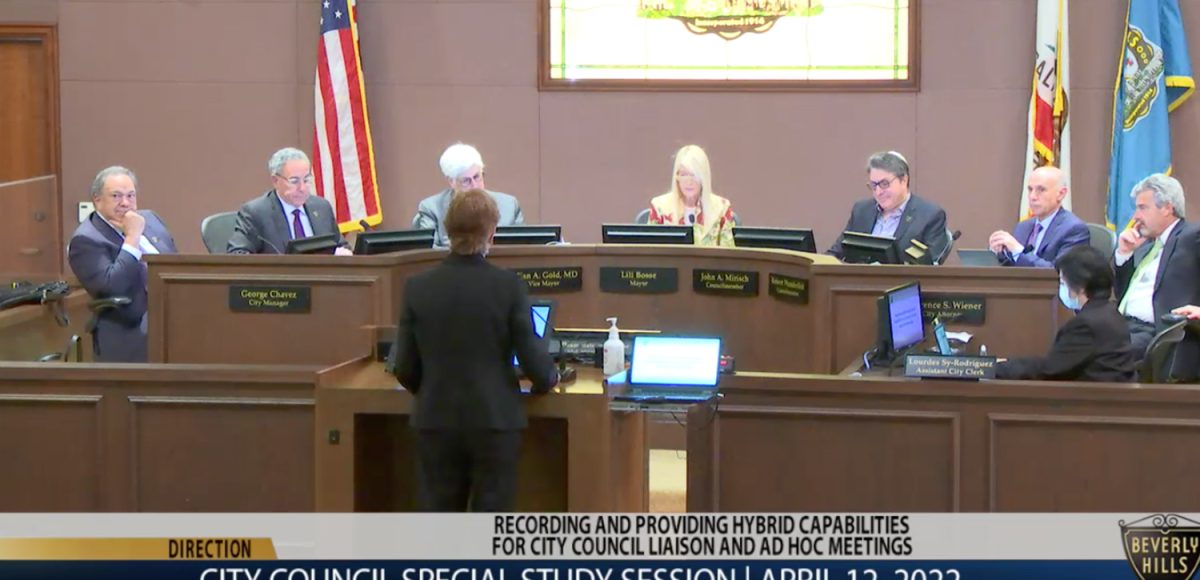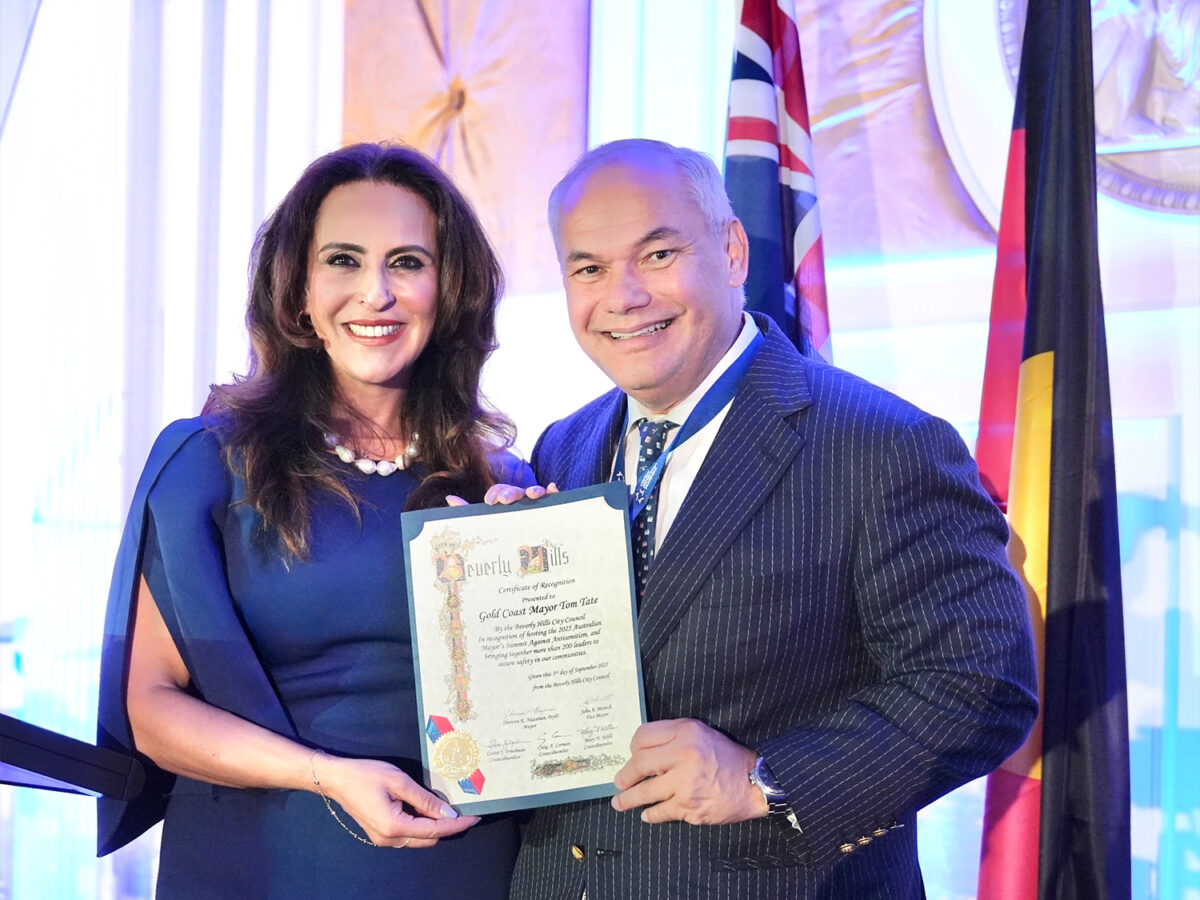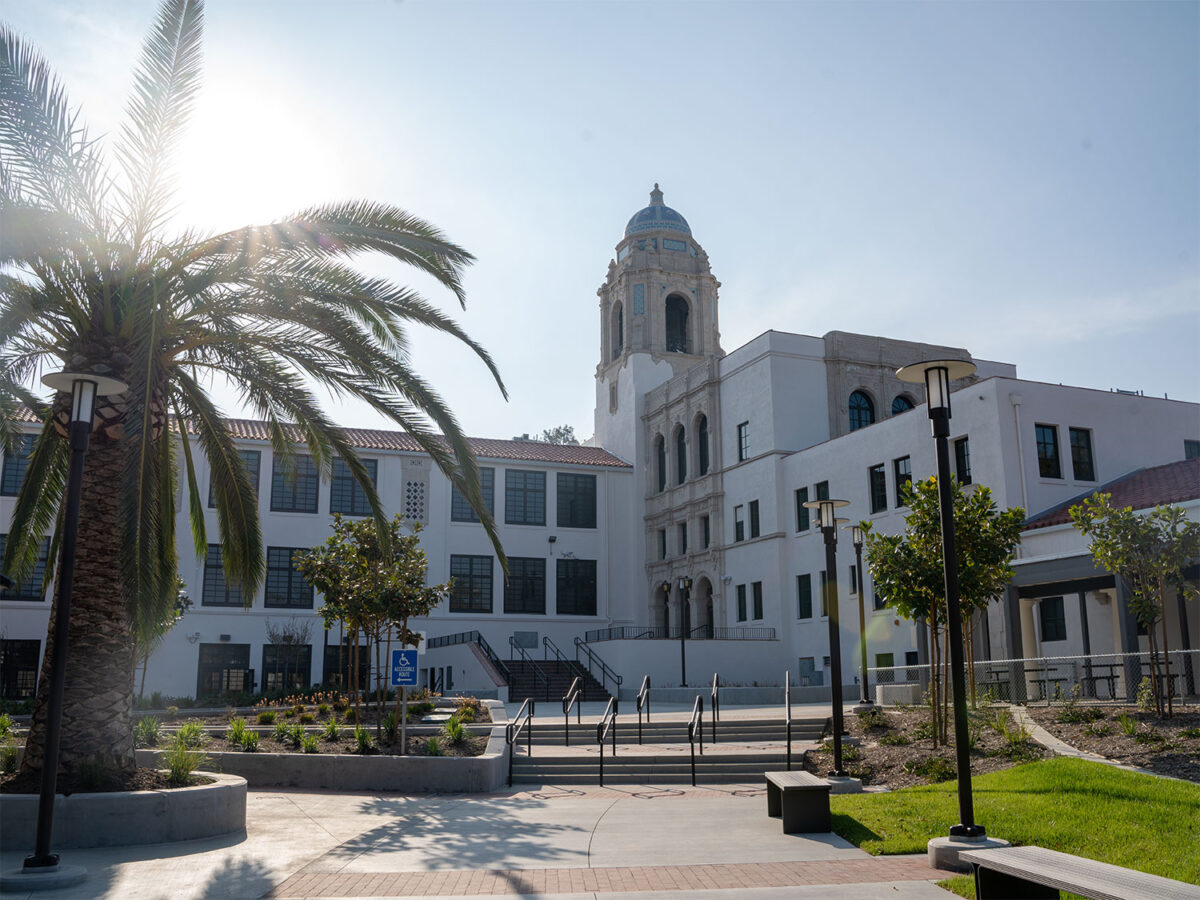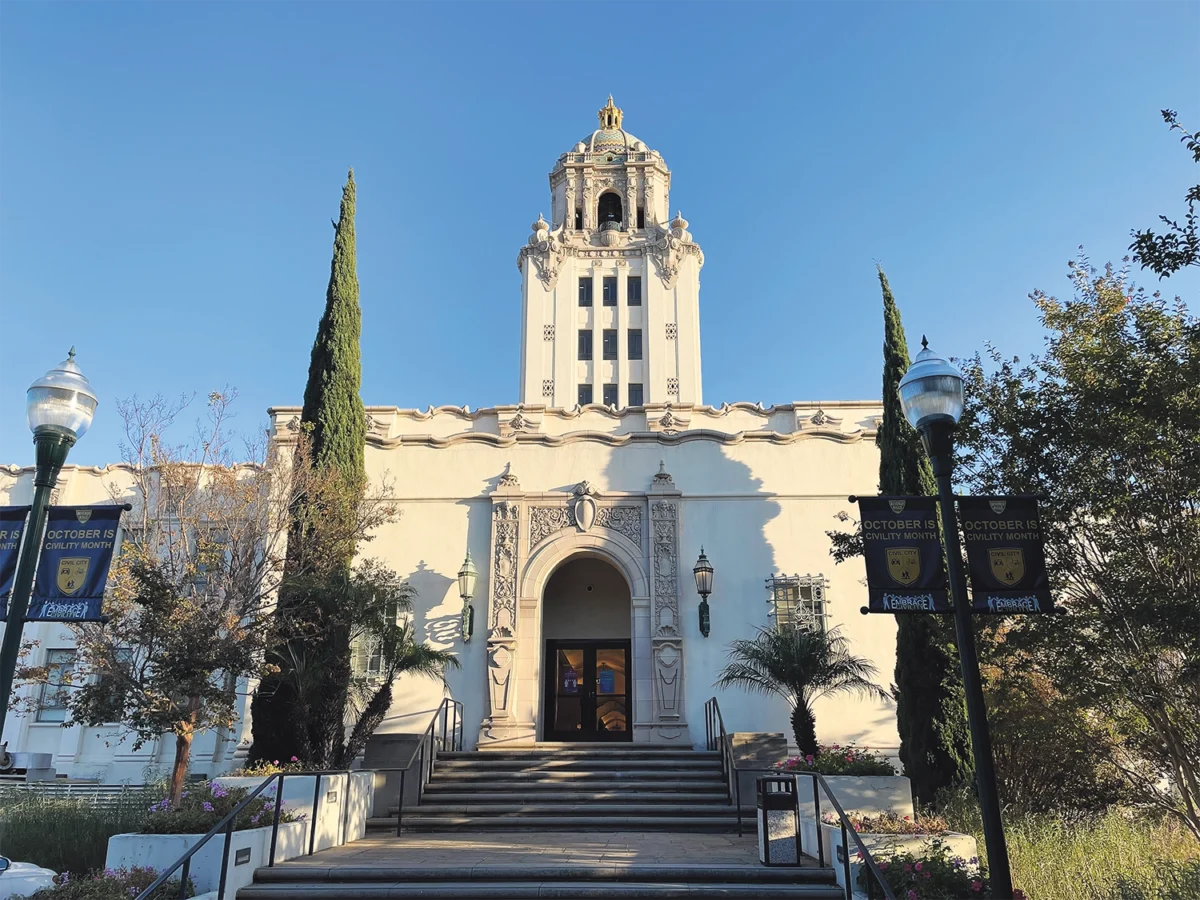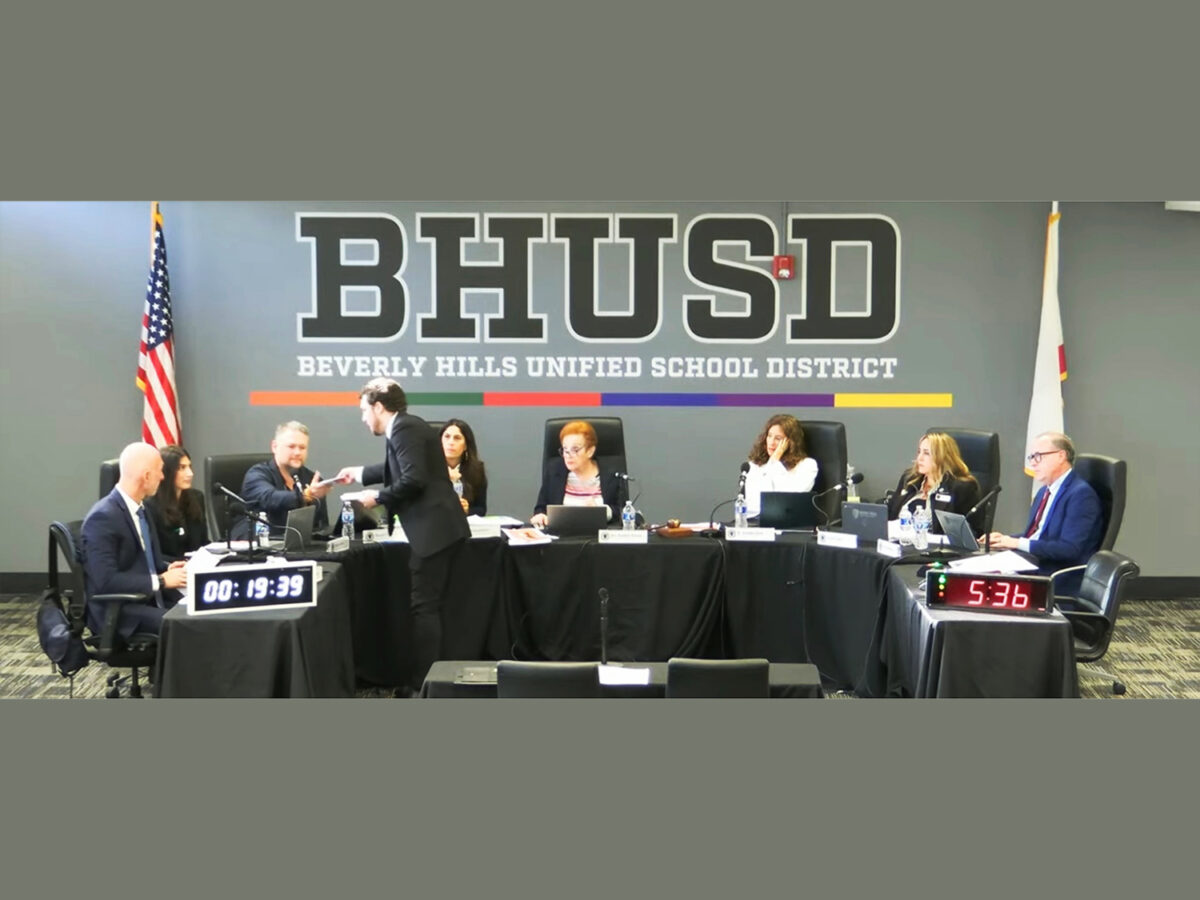The Beverly Hills City Council met in chambers on Tuesday afternoon for an at-times lively and serious special study session prior to its evening meeting. Following in-depth discussions and presentations covering the Beverly Hills Police Real Time Watch Center and Rodeo Drive special events, including the upcoming Concours d’Elegance, the discussion turned to the final two topics: Mayor Lili Bosse’s request for an update on the creation of a public health department for the City of Beverly Hills and the recording and providing of hybrid broadcast-online capabilities for Council liaison and ad hoc meetings, as in-person meetings have resumed.
At her installation last week, Bosse announced her hope to spearhead the creation of a public health department for the city. This idea was initially discussed on December 1, 2020 by City Council, and a staff report was presented a week later on December 8, 2020.
“I’m going to keep this report brief to one slide for all of you at City Council,” said City Policy and Management Analyst Cynthia Owens. She shared that the city staff has done substantial research on the four city health departments that are currently established in the state, what services they offer and at what cost, as well as on the laws of creating a public health department. “There are over 170 of them in the books in Sacramento.” She concluded that the city staff will present another report with substantially more information in September.
Councilmember Robert Wunderlich expressed that the idea for a city health department had originated during the pandemic and wondered if the city could instead have an “on-call” health department that could be expanded in times of crisis. Councilmember John Mirisch expressed his skepticism of the health department idea and instead suggested strengthening the city’s voice with the Los Angeles County Health Department. Vice Mayor Julian Gold, M.D. suggested that the city does not have the bandwidth to address certain aspects of a health department, such as vector control and immunization records. “I think the question becomes: ‘Can we parse out what we want?’ I suspect we’ll not be able to.” He suggested the city look into having its own health official but believed that a health services department could be required in that case. Independent of the idea of creating a health department, he said, “I think it’s an opportunity for us to give some thought to what kinds of health services we want to provide to the community.” He suggested and supported the idea that health services could and should be expanded in the city without the creation of a city health department per se. Bosse said she agreed and that she was glad the report would be coming back in September, adding that the city currently provides health services that residents may not be aware of. “At another time, we should talk about what we do provide and also see where there are some holes.”
Moving on to the last topic of the study session, Assistant City Manager Nancy Hunt-Coffey made a presentation on the recording and providing of hybrid broadcast-online capabilities for Council liaison and ad hoc meetings.
“To-date, Council has indicated that meetings will be in person, but in the interest of transparency, and convenience, members of the public may participate in a hybrid fashion, which is something that we became accustomed to using Zoom,” said Hunt-Coffey, presenting a staff report. “Now that we’ve experimented with broadcasting public meetings in a hybrid environment, such as today, it has become clear that additional resources will be needed to support the continued broadcasting and recording of liaison and ad hoc meetings in a hybrid fashion.”
Hunt-Coffey stated hat the cost of outfitting two additional City Hall rooms for hybrid broadcasting and recording would be lower than originally estimated in a 2020 staff report, with the one-time total cost to purchase and install the recording and broadcasting equipment now estimated at approximately $250,000. The estimated cost for two cable television part-time, regular positions with benefits would be $157,000 per year. Additionally, there would likely be an ongoing licensing fee for the software that controls the recording and broadcasting in the meeting rooms. Staff estimates that this ongoing cost would not exceed $20,000 per year. The ongoing annual operating cost of such broadcasting and recording needs would amount to about $177,000.
Bosse thanked Hunt-Coffey for a great report and opened the discussion to public and Council comments. Wunderlich expressed his support for the proposal and said he felt the one-time, start-up cost was justified, especially as the technology could be used for other purposes, such as training. Councilmember Lester Friedman agreed, but said he felt it would be important to assess the depth to which people would be watching to justify the ongoing cost, while also expressing the need for an “open government,” a point to which Wunderlich concurred. Mirisch expressed his support of the project as an important way to document and archive Council process.
“This is the essence of open government,” Mirisch said. “This is money well-spent.”
The prototype for the newly outfitted broadcast and recording hybrid Zoom rooms at City Hall should be in place within a number of weeks.



